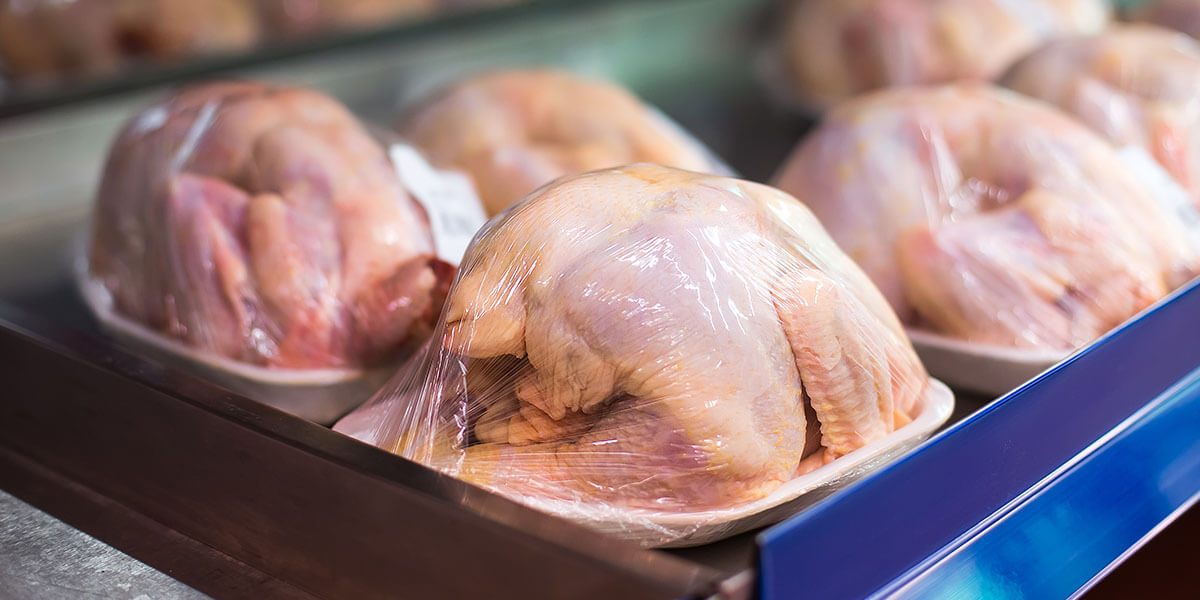The skin or epithelial tissue of an animal provides a physical barrier between the animal and its environment, protecting the animal from bacteria and physical injury. In the case of poultry, if the integrity of the skin is challenged, the health of the bird can be compromised, and the value of the end-product can dramatically decrease.
A consumer purchasing a chicken breast does not want to see any visual scratches to the skin of the breast or blemishes to the breast itself when making a purchase decision.
Factors Impacting Skin Lesions in Poultry
There are several factors that can impact the integrity of the skin in a poultry operation and lead to scratches, such as stocking density, nutrition, type of equipment in the broiler house and handling during capture and processing. Once a scratch occurs, the bird is more susceptible to a bacterial infection. This can impact the overall wellness of the bird and result in a total carcass condemnation.
Prevention is the best solution, but there are also steps poultry producers can take to enhance the integrity or resilience of the skin or epithelial tissue.
Rapidly dividing cells, such as those of the epidermis or skin, are dependent on zinc to provide a strong skin or epithelial barrier to protect against bacteria and physical damage. Ninety percent of the cells found in the skin are called keratinocytes, the predominant type of cell in the epidermis. Keratinocytes form the outermost layer of cells that protect animals and humans from environmental challenges. Should a pathogen invade the outer layer of the epidermis, keratinocytes react by producing pro-inflammatory mediators, which attract leukocytes to the site of pathogen invasion helping to fight the infection challenge and heal the site.
This is important, as between 6 and 20 percent of the zinc stored in the body — human and animal — is in the outermost epithelial layers of the skin.
Availa® Zn helps reduce skin lesions in poultry
Zinpro Corporation funded a study in coordination with Auburn University to investigate the effect of feeding broilers different forms of zinc on skin tears and scratches. Results from the study showed feeding zinc from Availa® Zn resulted in a reduction in sores, scabs and scratches on the thigh and back of broilers.
The study involved 1,440 one-day-old male broiler chicks in a randomized design containing eight replicates per treatment and 60 birds for each replicate. There were three study treatments:
- Control Treatment: Ration containing 80 ppm of inorganic zinc sulfate
- Availa® Zn Iso Treatment: Ration contained 40 ppm of zinc sulfate and 40 ppm of Availa-Zn
- Availa-Zn On Top Treatment: Ration contained 80 ppm of zinc sulfate and 40 ppm of Availa-Zn
Research from the Auburn study showed that the proportion of skin lesions decreased from 42.7 percent in broilers fed the inorganic zinc sulfate to 9.6 percent in birds fed zinc from Availa-Zn. In addition, the study also showed that the percent of broilers with cellulitis lesions declined from 52 percent in broilers fed inorganic zinc sulfate to 40 percent in broilers fed Availa-Zn. Broilers fed Availa-Zn had fewer skin tears and scratches (40 percent compared to 52 percent), resulting in less incidents, and the incidence of severe cellulitis declined from 20 to 8 percent in broilers fed Availa-Zn.
In addition, the prevalence of pododermatitis — an inflammation of the bird’s feet triggered by the litter conditions — was measured in this study. The inclusion of zinc from Availa-Zn in the diet reduced the prevalence and severity of pododermatitis.
By feeding Availa-Zn, poultry producers can improve broiler skin integrity which helps reduce the incidence of sores, scabs, scratches and pododermatitis in chickens. This results in less potential for carcass condemnation and more meat to sell. In addition, a stronger epithelial layer also helps protect the bird from bacterial or pathogenic infections.
Contact your Zinpro representative or download the Poultry Skin: Barrier and Healing research report to learn more about performance trace minerals, including Availa-Zn, and their role in helping to prevent poultry skin lesions and scratches.

